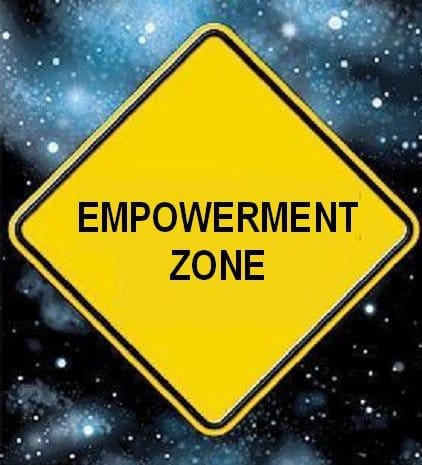Peer accountability is critical to success in teams
I started to make this blog post one of my #SoapBox rants. It is in fact a topic about which I am passionate. Largely because I have seen really bad behaviors and would love to do my part to get rid of them. I’ve blogged about Trust, Empowerment, and Accountability, but never really dug deep into accountability. While I think many organizations are starting to do a really good job at defining expectations and holding people accountable, it is still too often the manager that is calling the tasks and managing the tough conversations. A few people have really argued that peers can play as active a role in this and they should. And I agree. So this post is about holding each other accountable, across silos and organizational hierarchies.
————————–
There is a dirty little secret in many organizations that teams oftentimes don’t want to collaborate, driven perhaps by the idea that while we do a lot of our work in teams, we still promote individuals. If you follow the two-pizza rule and assume most teams are 8-10 members dispatched to work on a business need, in a given fiscal year probably 1-2 of those people (at most) will get advanced. If you’re in the 7-9 who don’t get advanced and that keeps happening, you might eventually become a bit disgruntled about the idea of constant team-building.

Here’s the other problem with teams besides the motivation aspect: how they’re run. Oftentimes, teams are very driven by process — which is a good thing, as it sets rules and expectations for how the work will get done — but there’s a large concern over who owns the process, i.e. the team lead. This is also good in one respect (accountability), but bad in another — and ironically, it’s also accountability.
I saw this recently in an organization. One of the leaders designed a portfolio dashboard for project management in his group. It was pretty awesome — there was easy-to-access, intuitive information about timelines, budgets, due dates, and roles. Here was the problem: the tool was created by someone not responsible for creating that tool based on the operating model and org structure (it should have been the PMO). Because the team wasn’t getting what they wanted from the PMO, they did an end-run and created a better solution. Of course, this type of action can lead to a decent amount of politics and finger-pointing over responsibility, as opposed to a focus on being the most productive we could be.
Sadly in many cases, the way we structure teams is typically representative of the way we structure whole organizations. Hierarchy defines decision-making authority in the most formal sense. Since hierarchy may never die — despite what we’ve been told about millennials — we should, in a way, get used to this.
Think for a second about how ineffective this can be. You’ve probably seen this cycle a dozen or more times in different jobs you’ve had, but here it goes: an employee escalates an issue to a team manager, who then must go and talk to a peer manager. The peer manager has to go talk to the employee, who presents his/her perspective to the peer manager — who now has to go back to the team manager and explain the perspective. The team manager can now go to the employee. It’s like a massive version of reply all chain threads, but in real life and not in your inbox. It kills time and saps productivity, and yet, that’s typically how we deal with team management and issue escalation.
Escalations and circles of perceived accountability should be the exception and not the rule. I think of my work this way: 95% of real change comes from the direct reports of my direct reports. They do the actual work. I should be focusing on strategy and growth. If I’m spending all my time quashing escalations, we’re all in a free fall.
There’s a potentially better way to run teams, though: universal accountability.
The basic principle is simple, but very hard to execute: anyone on a team can hold anyone else accountable if it’s in the best interest of the team. And yes, that means you can cross hierarchical lines and call out someone that outranks you.
 In a post on the Harvard Business Review blog, “The Best Teams Hold Themselves Accountable”, Joseph Grenny summarized a theory based around this series of logic:
In a post on the Harvard Business Review blog, “The Best Teams Hold Themselves Accountable”, Joseph Grenny summarized a theory based around this series of logic:
- In the weakest teams, there is absolutely no accountability: You’ve probably seen this a few times wherever you work, or in previous jobs.
- In mediocre, middle-of-the-road teams, the boss/team lead is the source of accountability: This team might get a few things done, which is good, but there’s a tendency towards HIPPO Management (highest paid person’s opinion) and other flaws of ideation.
- In high-performing teams, peers manage each other: This is hard to arrive at because of how people tend to contextualize bosses and hierarchy, but actually drives the best results.
How can you apply this to your team?
Focus on team composition a lot more
You need to think a little more thoroughly about team composition. Oftentimes teams are thrown together based on a few silos that have ownership of a product or service or project. There can often not be much thought given to who’s involved and what role they’d play. As a result, you have a random smattering of individuals and a team lead. That team could come together and achieve some great business results, but I wouldn’t necessarily throw $20 on that happening in Vegas. It’s more likely that role confusion will lead to overlapping responsibilities, which will lead to team members chasing their tails, and ultimately the team lead will be on the hook for the flaws.
2. Hire the curious as much as (or more than) you hire the smart
Universal accountability will tend to work better on teams with a high degree of self-awareness and curiosity, as those teams are more willing to embrace changes to conventional team management models. Cass Sunstein, a professor at Harvard Law, has written and spoken extensively about what makes teams smart or dumb — and while he embraces universal accountability, he admits the bigger driving force of a successful team is ‘C-Factor,’ or the ability to embrace new ideas while working together. Hire people that are comfortable with change and ambiguity as long as they are learning. Hire the curious.
3. Reward problem solving without escalation
Perhaps as importantly, publicly scorn premature or unnecessary escalations. When I was a kid, my parents often told me “everyone hates a tattletale”. Of course, they did not mean to say I should never tell them if something awful happened to me. They simply wanted me to learn to self-heal and self-resolve conflicts as much as possible. Little did I know then they were teaching me a life lesson. The more you can solve problems direct with the source, the more effective you will be. Celebrate the problem solvers.
4. Model the behavior
You likely have issues with your peers as well, and your frustration is very visible to your teams. Show them you hold your peers accountable and they are more likely to model this behavior with their peers.
In an average day, you will only have so many productive hours outside of meetings and required client events, so you need to make the most of them. Every hour spent dealing with someone else’s drama or problems is an hour you could be driving value. Try to build a culture of universal accountability and see how much more you can get done.
Ever been on a team where Universal accountability was the norm? Could it work in YOUR organization? As always, I would love to hear your thoughts.
Be well. Lead On.
Adam
Related Posts:
Defining the Perfect Employee – Top Traits Series
Trait 1: Hard working AND talented
Trait 2: Pride in work product
Trait 3: Fun to work with
Investing in talent for the long-term

Adam L. Stanley Connections Blog
Technology. Leadership. Food. Life.
AdamLStanley.com
Follow me on Twitter | Connect with me on Linked In | “Like” me on Facebook


 Building relationships based on respect
Building relationships based on respect

 Empowerment: People must be allowed to make decisions and drive change without being micromanaged and without needing to get multiple approvals; they must be allowed to be leaders. Just as importantly, we must enable those whom we empower. Power without training is not a formula for success. Empowerment is about giving a person the ability to manage something tangible that adds value, but also about working with that individual to help him or her succeed.
Empowerment: People must be allowed to make decisions and drive change without being micromanaged and without needing to get multiple approvals; they must be allowed to be leaders. Just as importantly, we must enable those whom we empower. Power without training is not a formula for success. Empowerment is about giving a person the ability to manage something tangible that adds value, but also about working with that individual to help him or her succeed.

